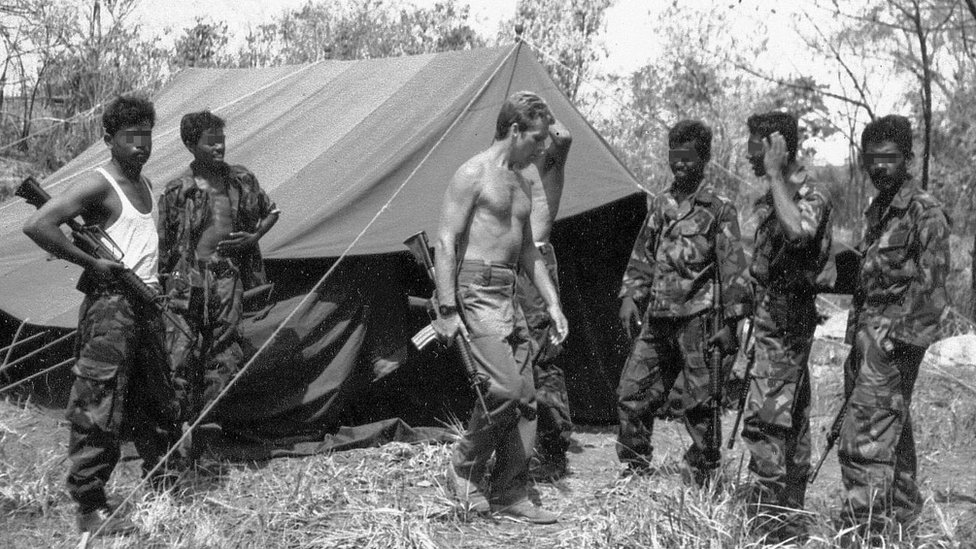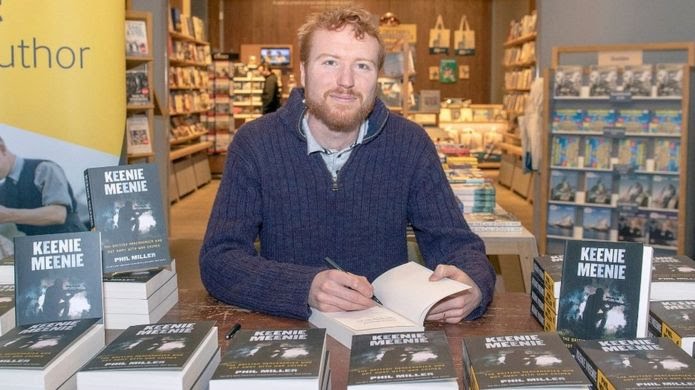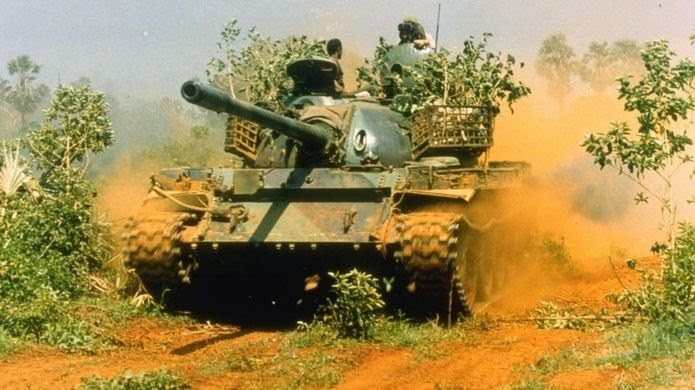British Trying To Destabilize Sri Lanka Through Investigation of Mercenaries over Sri Lanka war crimes

Britain has been delaying extradition of Indian fugitives on one pretext or the other but now has found out a new way to try and interfere once again in Sri Lanka. India must stand firmly with Sri Lanka and stop such nefarious action in its track.
UK has now ordered investigation into actions of British mercenaries who were involved in the Sri Lankan civil war. They are being investigated for war crimes by the Metropolitan Police. Once they concoct evidence then they will try and pressurize the Govt if Sri Lanka through the notorious Human Rights Commission Of the UN.
Private security company Keenie Meenie Services (KMS) had trained an elite unit of the Sri Lankan police called the Special Task Force (STF) in the 1980s to fight Tamil separatists. The STF has been accused in a number of human rights abuses by various European media including british.
These have included executions without trial and killings of Tamil civilians.
The investigation is believed to be the first time British mercenaries have been investigated by the Met, which is the UK force responsible for investigating accusations of war crimes or human rights abuses.
A police spokesperson said the Met had received a referral in March concerning allegations of war crimes committed by British mercenaries and following a “scoping exercise”, it had launched an investigation. The British are acting as of they still have the capability to lord over Asia.
They better refrain from such understand methods or they are likely to lose Sri Lanka as a friend. India too must issue a warning to Britain.

Much of the evidence concerning KMS’s involvement in Sri Lanka has come from declassified UK government documents and freedom of information requests submitted by journalist Phil Miller, whose book, Keenie Meenie: The British Mercenaries Who Got Away With War Crimes, was published in January.
He said the investigation was being closely followed by the UK’s 200,000 strong Tamil community – many of whom fled to London during the civil war in Sri Lanka.
“A lot of Tamil people became refugees in the 1980s, that’s when KMS were there,” Mr Miller said.
“People remember being attacked by helicopter gunships so I think people are quite shocked to learn that in many of those cases helicopters were flown by British mercenaries.”
The Sri Lankan civil war

The Sri Lankan army defeated Tamil Tiger rebels in May 2009 after 26 years of bloody conflict.
The war divided Sri Lanka along ethnic lines – pitting the majority Buddhist Sinhalese-dominated government against Tamil rebels who wanted a separate state.
The fighting killed an estimated 100,000 people and left about 20,000, mostly Tamils, missing.
At the end of the war, the United Nations accused both sides of atrocities, especially during the conflict’s final stages.
KMS was founded by David Walker, a former SAS officer. KMS no longer exists but the 78-year-old is one of the directors of a subsequent company, Saladin Security, which is based in Kensington.
Mr Walker has strongly maintained that nobody from KMS was complicit in war crimes in Sri Lanka. In a statement, his representative said: “The allegations that David Walker or staff of KMS Limited were complicit in war crimes in Sri Lanka in the mid-1980s is categorically denied.
The war crimes unit of the Metropolitan Police said it was acting on a referral received in March “concerning war crimes alleged to have been committed by British mercenaries in Sri Lanka during the 1980s”. This department should stop poking its nose into another country ‘s affair.
“Following receipt of the referral, the War Crimes Team began a scoping exercise into the matter and have subsequently launched an investigation,” it said, declining to comment further while the probe is ongoing.




